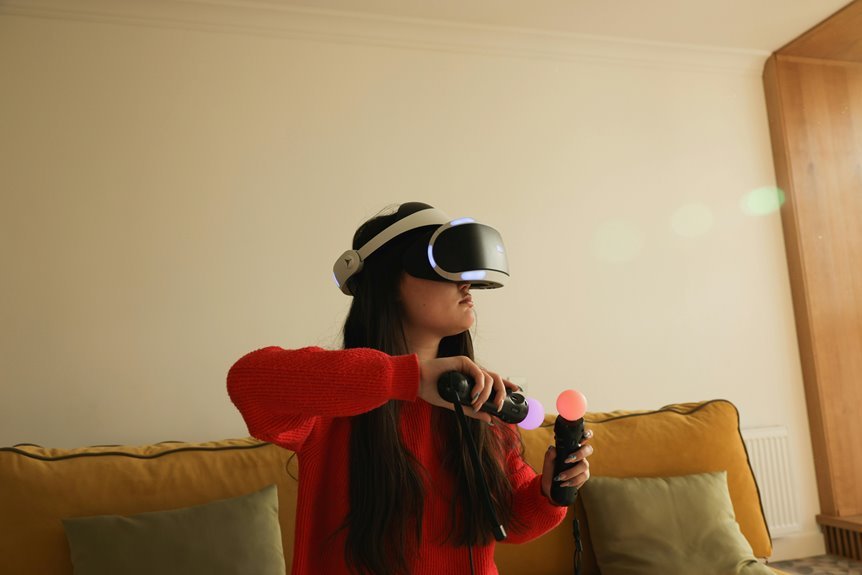
10 Tech Innovations That Could Save Lives in the Future
The landscape of healthcare is rapidly evolving, driven by technological advancements that promise to enhance patient outcomes. Innovations such as artificial intelligence in diagnostics and wearable health monitoring devices are reshaping how care is delivered. Meanwhile, telemedicine platforms and gene editing technologies present new avenues for treatment accessibility and efficacy. As these developments emerge, their potential impact on global health systems warrants closer examination to understand the full spectrum of benefits they may offer.
Artificial Intelligence in Diagnostics
Artificial Intelligence (AI) is revolutionizing the field of diagnostics, offering unprecedented accuracy and efficiency in identifying medical conditions.
Through predictive analytics and machine learning, AI systems analyze vast datasets, uncovering patterns that elude traditional methods.
This technology not only enhances diagnostic precision but also empowers healthcare professionals, enabling them to make informed decisions swiftly, ultimately fostering a more proactive approach to patient care and well-being.
Wearable Health Monitoring Devices
Wearable health monitoring devices represent a significant advancement in personal healthcare technology, enabling continuous tracking of vital signs such as heart rate and oxygen levels.
These devices not only provide users with real-time health insights but also incorporate emergency alert systems that can notify medical professionals in critical situations.
As a result, they enhance patient safety and empower individuals to take proactive steps in managing their health.
Continuous Vital Signs Tracking
An increasing number of individuals are turning to continuous vital signs tracking through advanced health monitoring devices, which have revolutionized personal healthcare management.
These wearable sensors provide real-time data, enabling users to engage in proactive health analytics. By monitoring key metrics such as heart rate and oxygen levels, individuals can make informed decisions, fostering a sense of autonomy over their health and well-being.
Emergency Alert Systems
As health emergencies can arise unexpectedly, the integration of emergency alert systems within wearable health monitoring devices has become increasingly vital.
These systems facilitate timely responses, enhancing community engagement in health management. Through effective system integration, users can share vital information with healthcare providers instantly, ensuring rapid intervention.
This technology empowers individuals, fostering a proactive approach to personal health and safety in critical situations.
Telemedicine and Remote Patient Care
Telemedicine and remote patient care represent a transformative shift in healthcare accessibility and efficiency.
By facilitating virtual consultations, patients can receive timely medical advice without the barriers of travel and wait times, while technology enables continuous monitoring of chronic conditions from the comfort of home.
Additionally, innovations in emergency care through telemedicine can drastically improve response times and outcomes during critical situations.
Virtual Consultations Accessibility
While healthcare accessibility has long been a pressing issue, the rise of virtual consultations has emerged as a transformative solution, bridging the gap between patients and providers.
The remote consultations expansion enhances digital health equity, allowing individuals in underserved areas to access essential medical services.
This innovation empowers patients, promoting autonomy and ensuring that quality healthcare is within reach for everyone, regardless of location.
Monitoring Chronic Conditions Remotely
A significant number of individuals suffering from chronic conditions can benefit immensely from remote monitoring technologies that facilitate telemedicine and remote patient care.
Telehealth platforms enhance patient engagement by enabling real-time health tracking and communication with healthcare providers.
This proactive approach not only empowers patients in managing their conditions but also reduces hospital visits, ultimately promoting a more liberated and health-conscious lifestyle.
Emergency Care Innovations
As healthcare systems increasingly embrace technological advancements, emergency care innovations are transforming the landscape of patient response and treatment.
Telemedicine facilitates immediate emergency response and efficient patient triage, while enhanced crisis communication tools improve coordination during disasters.
First aid advancements and robust medical training further bolster trauma care efforts, ensuring preparedness and rapid response coordination when lives are on the line.
CRISPR and Gene Editing Technologies
CRISPR and gene editing technologies represent a groundbreaking advancement in the field of biotechnology, with the potential to revolutionize medicine and agriculture.
These techniques enable precise gene therapy to treat genetic disorders and inherited diseases, fostering advancements in precision medicine.
However, ethical implications and the necessity for robust regulatory frameworks remain crucial as society explores these powerful biotechnological applications for public health and agricultural advancements.
Drones for Emergency Medical Delivery
Drones are emerging as a pivotal technology in emergency medical delivery, significantly enhancing rapid response capabilities during critical situations.
Their ability to access remote areas, often difficult for traditional vehicles, ensures that essential medical supplies reach those in need without delay.
This innovation not only improves survival rates but also transforms the logistics of healthcare in underserved regions.
Rapid Response Capabilities
When emergencies strike, timely access to medical supplies can mean the difference between life and death.
Drones equipped for emergency medical delivery enhance disaster preparedness and crisis management by ensuring rapid response capabilities. These unmanned aerial vehicles can swiftly transport essential items—such as blood, vaccines, and medications—directly to affected areas, providing critical support and potentially saving countless lives during urgent situations.
Remote Area Accessibility
How can healthcare reach individuals in remote or inaccessible regions during emergencies?
Drones offer innovative mobile healthcare solutions, ensuring timely delivery of essential medical supplies.
This technology supports rural health initiatives by overcoming geographical barriers, thereby enhancing access to life-saving resources.
As drones become integral to emergency response, they symbolize a future where healthcare is not limited by location, fostering independence and empowerment.
3D Printing in Prosthetics and Organ Transplants
As advancements in technology continue to reshape the medical landscape, 3D printing emerges as a groundbreaking solution in the fields of prosthetics and organ transplants.
Bioprinting advancements enable the creation of custom prosthetics tailored to individual needs, significantly enhancing comfort and functionality. This innovative approach not only improves patient outcomes but also opens new avenues for organ transplants, potentially addressing critical shortages in donor availability.
Virtual Reality for Pain Management
Virtual reality (VR) is emerging as a transformative tool in the realm of pain management, offering patients a novel way to cope with chronic pain and discomfort.
By utilizing immersive experiences within virtual environments, individuals can divert their focus from pain, leading to significant reductions in perceived discomfort.
This innovative approach empowers patients, fostering a sense of control and enhancing their overall quality of life.
Blockchain for Secure Health Data Management
While traditional health data management systems often struggle with issues of security and interoperability, blockchain technology presents a promising solution that could revolutionize the way patient information is stored and shared.
Robotics in Surgery and Rehabilitation
The integration of advanced technologies in healthcare is not limited to data management; robotics is becoming increasingly influential in surgical procedures and rehabilitation.
Surgical robots enhance precision, reduce recovery times, and minimize complications, while rehabilitation automation offers personalized therapy regimens.
As these innovations evolve, they promise to empower patients, granting them greater autonomy and improving overall health outcomes in a rapidly changing medical landscape.
Smart Vaccines and Personalized Medicine
As advancements in biotechnology continue to reshape the landscape of healthcare, smart vaccines and personalized medicine are emerging as pivotal innovations in the fight against disease.
This approach tailors vaccine development to individual genetic profiles, enhancing immune response and efficacy.
Conclusion
As technology advances, a juxtaposition emerges between traditional healthcare practices and innovative solutions that promise to reshape the medical landscape. While conventional methods often struggle with accessibility and efficiency, emerging tools like AI diagnostics and telemedicine bridge gaps, ensuring that quality care reaches even the most remote corners of the world. This duality highlights not only the potential for improved patient outcomes but also the urgent need for adaptation in a rapidly evolving healthcare environment.




